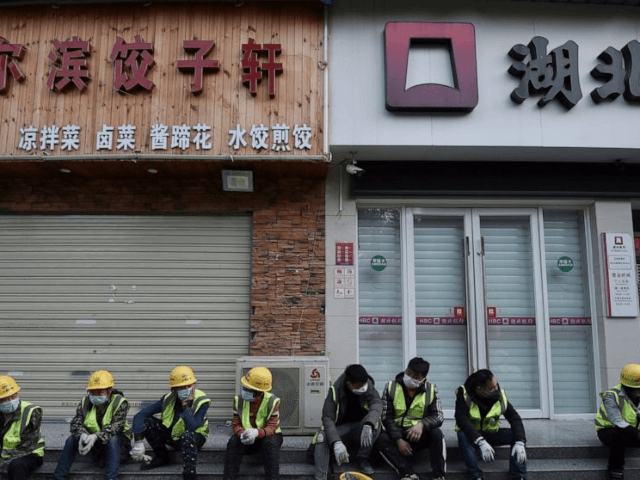Various industries in the Chinese city of Wuhan, the epicenter of the coronavirus epidemic, were reportedly told by officials to go back to work on Wednesday after communist dictator Xi Jinping visited the city for the first time since the outbreak began.
Wuhan, located in China’s central Hubei province, has been under lockdown since late January. Local Communist Party officials moved to isolate patients over a month after doctors began treating the first coronavirus patients, allowing the virus to spread undisturbed for weeks.
Xi made his first visit to the region to inspect epidemic prevention and oversee other efforts in the province this week, a sign that the outbreak may have finally reached its peak.
Visiting a community still in self-quarantine, Xi declared that the spread of the disease had been “basically curbed” in Hubei province and Wuhan. “Initial success has been made in stabilizing the situation and turning the tide in Hubei and Wuhan,” he said.
Chinese state media also quoted “analysts” approved by Beijing as saying that Xi’s visit had sent a “strong signal to the entire country and the world that China is ascending out of the darkest moment amid the outbreak.” He also made a visit to Huoshenshan hospital, a temporary facility allegedly constructed within ten days. Photographs for his visit showed him speaking to staff and patients via video link.
Following Xi’s visit, the Hubei provincial government reportedly posted a notice online stating that public transport workers and those engaged in making medical supplies and producing living essentials must now return to work. Industries with national or global supply chains could also return to normal with permission from health authorities.
The city of 11 million is known as one of China’s industrial powerhouses, accounting for around ten percent of vehicles made nationwide while also hosting thousands of parts suppliers. On Wednesday, Japanese automakers Honda and Nissan also announced that they would partially resume production at their facilities in Hubei.
Some curbs will remain in place, including a shutdown of all the region’s schools and heavily reduced access to public transport. Elsewhere in China, state media claims life will gradually return to normal, with authorities in around three-quarters of Chinese regions and provinces lowering their emergency response level down from the highest tier.
The latest figures from China’s Health Commission, a source controlled by the Chinese Communist Party, claimed that the spread of the virus had slowed to 24 new cases nationwide and 22 more deaths, all of which occurred in Wuhan. Numbers in Hubei province have now declined for the sixth straight day and a large percentage of new cases are allegedly travelers from abroad.
Although the severity of the crisis appears to be declining in China, new data released on Wednesday morning found that the global infection rate also continues to accelerate, with more than 118,100 confirmed cases and a global death toll of 4,260. The virus has spread to six continents and more than 100 countries, causing mass cancellation of events and a major slowdown of life across many of the affected places.
Follow Ben Kew on Facebook, Twitter at @ben_kew, or email him at bkew@breitbart.com.

COMMENTS
Please let us know if you're having issues with commenting.